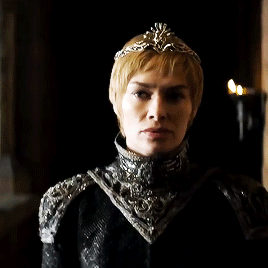
Every hero goes up against a villain. Every protagonist against an antagonist. This is the main clash that drives your story, any story, forward be it slice of life or epic drama.
One of the elements that can make this driving force compelling, that will make the clash interesting and engaging, is how seriously your audience will take the villain, the antagonist. And there are ways to do this that work, and others that don't. Today I want to look at a few things that will make a villain look intimidating and the fact that he/she is the main antagonist important enough that it takes an entire story- your story to have him beat… IF that is even manageable.
In my experience both as a creator and as a consumer of stories, be they in webcomic form or movie form or novel form, the powerful villain (or antagonist) is the one that concentrates as many characteristics as following from the ones I'm listing below:
He/she is confident 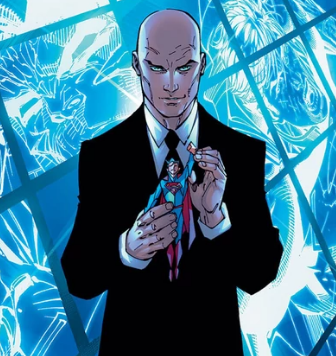
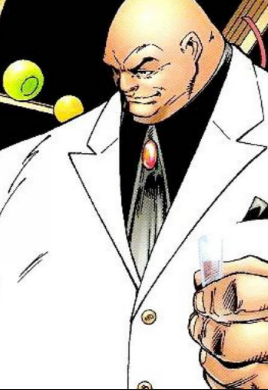
It might sound innocuous, but as in real life, confidence gives an impression of inner force and outward power. A person who is confident is so because they feel they can do whatever it is they set out to do. A confident villain is by default more intimidating exactly because we, as the audience, infer this confidence to mean exactly that: a learning history of success upon success for this very odious, evil, threatening person. So- make them having a resting face of smugness if you can.
He/she generally remains calm and composed. 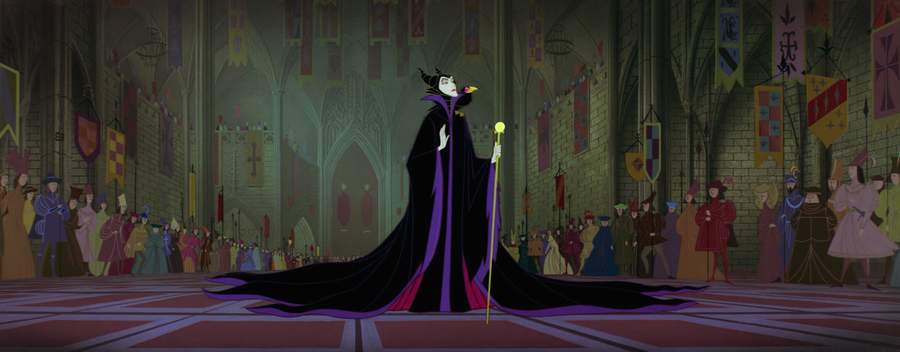
This is another key behavioral trait: the powerful person, the one in control of the situation, is the one that also keeps their composure. They won't be angry. They won't be ruffled. They may be annoyed, but that won't make them lose their calm and their vice-like grip on the reins of the scene.
Bonus points if they are SO confident they are in control, they taunt the other characters by pretending they aren't. 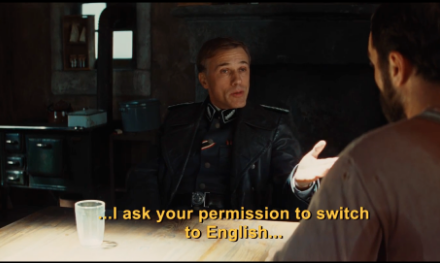
He/she is efficient 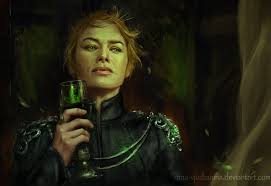
The reason stormtroopers are more of a joke than anything else, is that they wouldn't get an elephant if it smacked them across the face. That's how incompetent they are at shooting. An incompetent villain isn't intimidating, just like a gun that shoots blanks can't be threatening (if you are aware it's shooting blanks). So your villain must be shown to be quite efficient in everything they set out to do. So much so that it gets across to the audience the hero is up against someone much stronger than they are- even if the hero is ‘the chosen one’.
That means you have to be prepared to sacrifice members of your ‘good’ cast that aren't third tier extras only. It might not be easy for the villain (in fact, it better not be) but he/she should succeed in taking some of the big players out of the game. This will raise the stakes and make the audience take the villain seriously- UNLESS the death of your good guy is a cheapshot, that the audience doesn't buy it should have occured the way you presented it *coughSnapecough*
Your villain must have few or no moral limits 
Your villain must be prepared to go where most of your cast (or no other) will. What will that be? It's entirely up to you. But whatever limits of morality you put to your villain (unless they're an anti-hero) they cannot be strong enough to stop them from getting to their goal. And especially, they must be willing and able to go where your hero won't. Every line they cross is one more notch of intimidation going up for them. It doesn't have to be too many lines. Just enough for the audience to understand and believe that if this guy has to, they WILL do whatever it takes.
And these are the main trajectories that I've found work best! Other things, like intelligence or finesse or prowess, definitely help but won't be enough to make the villain someone the audience won't want to meet in a dark (or lit) alley.
What's your opinion? How do you design your villains in your webcomic?
Get your #Twitter_Feature! Book your Sunday now, PQ me!

Making Bad Guys Intimidating
Tantz_Aerine at 12:00AM, Aug. 4, 2018
8 likes!


©2011 WOWIO, Inc. All Rights Reserved Mastodon





PaulEberhardt at 6:52AM, Aug. 5, 2018
Irrevenant has a good point though: a lot of the villain's scariness depends on the protagonists, depending on how well we can identify with them. If you were to set, say, an amateur fanfic Mary Sue against an original Hannibal Lecter, we, the audience, might possibly feel more of an urge to buy him a nice Chianti to wash her down instead of being properly scared, if you know what I mean.
KimLuster at 6:33AM, Aug. 5, 2018
Late to this party! I'm having trouble thinking what to add to this, with all these fantastic responses! I guess another way to make villains more intimidating is to show the results of their plans and dastardly deeds in other characters. From the protagonists and secondary characters! Looks of worry, pleasing, begging, cries of despair, screams of rage... Captain Kirk's contorting face yelling, 'KHAN!!'
bravo1102 at 5:13AM, Aug. 5, 2018
@irrevenant: this article isn't about THE way to do villains, just ways to make them more intimidating. A villain who loses it all the time makes me wonder why the hell anyone is following them? Is he losing it because he's losing and knows it? Or is he becoming unhinged or has his confidence turned into super hubris? Losing it regularly is one way a villain can set himself up to lose it all. And then there's Napoleon. In many ways his rants were calculated. So you could have a grand manipulator who is inwardly calm but blusters only to control those around him. Now that's a villain.
irrevenant at 11:37PM, Aug. 4, 2018
Hmm. This may be a way to make an effective villain. But I'm not convinced it's *the* way. There have been some great out-of-control villains. Lex Luthor and Kingpin are fearsome villains, but so are the Joker and a rampaging Hulk. I'd even say that a villain needn't be confident so long as the audience knows how dangerous they are. This is what makes Netflix's Kingpin so scary - he's polite and outright meek - he's scary *despite* his own intentions. Villains who are unwilling to cross the line can be interesting too. Honestly, I suspect what makes a good villain has more to do with your protagonist and the story you're telling than any hard and fast requirements.
Ironscarf at 9:06AM, Aug. 4, 2018
I quite enjoy a villain who switches from calm and controlled to completely losing it at any moment. They can be more intimidating because there's an extra level of unpredictability. My favourite example of this is the king of the Blue Meanies, though he's not very scary I'll admit.
usedbooks at 6:45AM, Aug. 4, 2018
(In a dystopia, the villain objective is usually to maintain the status quo.)
usedbooks at 6:39AM, Aug. 4, 2018
I think it's also important for villains to have tangible goals and objectives. They have to have stakes -- at least main villains do. They have to have a reason to fight for what they want as hard as the protagonists. As a reader/viewer, I have to see the villain as motivated. I don't get as immersed in an "unknown" objective. It should be made known before the end. Objectives of "resetting the universe" or hatred of all creation work as well as a quest for money/power. It's more important that the villain wants something a lot and has villainous means to achieve it than what it is he wants.
bravo1102 at 6:34AM, Aug. 4, 2018
Efficient, calm and composed, confident and few or no moral limits. only the last in any way bespeaks EVIL. One great villains was the efficient bureaucrat of O'Brien from Orwell's 1984. Lavrenti Beria, Joseph Fouche, Reinhard Heydrich are all great models of villainy both in reality and their movie portrayals. Holocaust and Hitler's SS do great portrayals of Heydrich. Gerard Depardieu does a good Fouche in the Napoleon miniseries, though John Malkovich is superb as Tallyrand the anti-hero of the Napoleonic era. For a study in villainy a must-see is Robert Duvall as Stalin. not evil, just with a different morality and view of things. Evil is a point of view. The Ukrainians in the SS thought they were doing the right thing in opposing Stalin and Russia by massacring Jews. One notable villain there is being presented as a hero by modern Ukrainian nationalists.
usedbooks at 6:31AM, Aug. 4, 2018
Interesting perspective, Paul. I can't say I've read/watched too many of those types of things. I'm not that good with abstraction. I have trouble suspending disbelief and really feeling the "unseen" villain. Human and up-close-and-personal is more scary to me. When a villain takes a personal interest in a single character, that becomes the scariest thing. Villains that meet and have physical contact with the protagonist is what gives me chills.
mks_monsters at 5:08AM, Aug. 4, 2018
Honestly, I don't make my baddies scary looking. The most horrible villains in my experience look pleasing to the eyes, but are scum on the inside.
PaulEberhardt at 5:06AM, Aug. 4, 2018
The second type are the ones, that perhaps aren't actually evil but nevertheless do the most horrible things just because it's their job (or programming or geas). A mindless bureaucrat or technocrat who just doesn't give a damn for anyone can be much scarier than any violent sadist or galactic-scale supervillain. This is because all these emotions like hate or enjoyment or gloating or hunger for power are essentially human qualities, no matter how twisted they are. And this brings me to the gist of what all really scary villains have in common, and which you hinted at when talking about efficiency and moral limits: they're intimidating because they have considerably less humanity in them than the other characters. And the most scary stories are those where the concept of "good vs. evil" doesn't really apply - because it's a more human concept than anything else.
PaulEberhardt at 4:54AM, Aug. 4, 2018
The one comic I've currently got online isn't the type of hero-villain story, but I know what I'd do (respectively did in a fantasy novel draft I'm working on every once in a while.) For me, there's essentially two types of villains I find most intimidating. One is a villain you don't get to see directly and/or whose motives remain in some way mysterious, while on the other hand it must be clear that they don't just do what they do because they're evil. This is because a simple good vs. evil situation is much too childishliy naïve to be really frightening, and the classical great showdown with the archvillain, no matter how brutal and hard to get to, can never quite surpass the level of a Punch & Judy show in terms of eeriness. The best villains are those where you can never be quite sure if the hero really managed to vanquish him/her/it for good.
usedbooks at 4:42AM, Aug. 4, 2018
"Taking big players out of the game" doesn't have to take the form of murder. It depends on your cast, their objectives, and the nature of the story. The villain could crush a protagonist's confidence, cause a drastic character change, get the protagonist expelled, turn the protagonist to an antagonist, destroy the object of their quest... In the best stories, the villain proves that the protagonist can't win -- or that they already lost. Halfway to two-thirds through the story, you get your "bad ending" where the villain achieves his objectives. It doesn't have to include killing anyone, just "winning."
usedbooks at 3:41AM, Aug. 4, 2018
I had some failures writing villains early in the game. But at least they became fodder for an anti-hero to pick off. I have been much more successful in more recent arcs. The "big bads" are more notable for manipulating others and a lack of direct involvement. I found that I can't make throw-away inept "henchmen." Better to make them efficient and self-motivated, especially if their "handlers" are hands-off. It's the consent and approval of their actions that define the bosses. (Ficticious organized crime has some character development nuances to it, which I am learning.)
usedbooks at 3:32AM, Aug. 4, 2018
I love writing antagonists (villains or not). My most recent one was Captain Jack, who wasn't all that intimidating compared to others (kinda a shallow, fun-loving guy -- not adverse to violence, but his apathy kept him less scary), but he was super fun to write.
bravo1102 at 2:36AM, Aug. 4, 2018
I like doing villains who don't things all that seriously. They're so smug that the whole world is a joke to them. That's what I tried to do with Bob and Lon. On the other hand I hit everything you mentioned in this great article with the two Falasnorians Da-Tu and Fy-Zorla. I really think a lot of the success in the villains in Game of Thrones belongs with the actors the same with Inglorious Basterds or Django. So much was with the actors and casting. So you could say that a lot of what a villain does is in the way he does it. The performance. Oh, and thank you for doing a villain news post without any pictures of Joker. Gets tiresome when he's always the go-to example when so many times he's as laughable as stormtroopers aim.
dpat57 at 12:46AM, Aug. 4, 2018
Well played. Maybe this is covered by "efficient" but to be most satisfying, I think the villain must also be smart. The smartest person in the room. It's their smart, clever plan that sets the ball rolling and pulls the protagonist into the story. Hans Gruber smart.